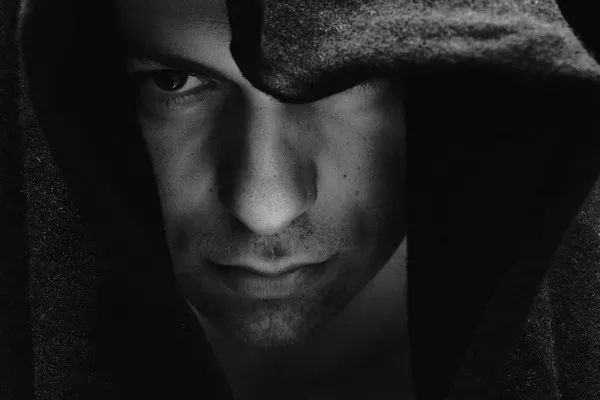In a groundbreaking televised interview that captured the attention of millions worldwide, Meghan Markle, Duchess of Sussex, and Oprah Winfrey, the renowned media mogul, engaged in a candid conversation that peeled back the curtain on the complexities of royal life, family dynamics, mental health, and race. The March 2021 interview offered a unique glimpse into the personal experiences of Meghan and her husband Prince Harry, Duke of Sussex, as they shed light on the challenges and controversies they faced within the British royal family.
1. Unveiling the Palace Walls: A Glimpse into Royal Realities
The interview, a two-hour primetime special titled “Oprah with Meghan and Harry,” was a momentous event that captivated global audiences. For the first time, Meghan Markle had the opportunity to openly discuss her life as a royal, dispelling some myths while confirming others. The couple’s decision to sit down with Oprah Winfrey, a trusted confidante and interviewer, sparked conversations on several fronts.
2. Navigating the Royal Struggles: Mental Health and Isolation
One of the most poignant revelations from the interview was Meghan’s admission that she had experienced significant struggles with her mental health during her time as a working member of the royal family. She disclosed that the intense scrutiny, media intrusion, and lack of support took a heavy toll on her emotional well-being. The interview brought to the forefront the importance of mental health awareness and support, even for those within the most privileged circles.
Meghan’s candid sharing of her experiences emphasized the need to normalize discussions around mental health. Her admission resonated with many who had faced similar struggles but felt inhibited by societal expectations. The interview further ignited conversations about the mental health challenges faced by public figures and the role of the media in exacerbating these issues.
3. The Elephant in the Room: Racism and Identity
Meghan, who is biracial, discussed the racism she encountered both within and outside the royal family. She revealed that concerns were raised about the potential skin color of her then-unborn child, Archie. This shocking revelation exposed the deeply ingrained issues of racism and bias that persist in even the most esteemed institutions.
The discussion of race within the royal family was a turning point in the public perception of the monarchy. It spurred conversations on systemic racism, privilege, and the responsibility of institutions to address and rectify such issues. Meghan’s openness paved the way for important dialogues about diversity and inclusion, both within the United Kingdom and on a global scale.
4. Seeking Independence: Royal Duties and Personal Choices
Another significant aspect of the interview revolved around Prince Harry and Meghan’s decision to step back as senior members of the royal family and seek financial independence. The couple detailed their reasons for this unprecedented move, citing a desire for a more private life, away from the intense scrutiny of the British tabloid press.
Their choice to pursue independent ventures, including media and charitable endeavors, led to discussions about the modernization of the monarchy and the evolving role of its members. It also raised questions about the fine line between personal autonomy and royal responsibilities, as well as the balance between tradition and contemporary values.
5. Media Influence and Responsibility: Lessons Learned
The media’s role in shaping public perceptions and narratives was a recurring theme throughout the interview. Meghan and Harry expressed frustration with the British tabloid press for its invasive and often misleading coverage. They highlighted the detrimental impact of tabloid stories on individuals’ lives and mental well-being.
The interview sparked a broader debate about media ethics, responsible journalism, and the boundaries of press freedom. It prompted discussions on the responsibilities of media outlets to verify information, avoid sensationalism, and respect the privacy of public figures.
6. The Aftermath and Ongoing Impact
Following the interview, reactions were diverse and impassioned. While some segments of the public were sympathetic to Meghan and Harry’s experiences, others criticized the couple for their decision to speak publicly about private matters involving the royal family. The interview also fueled tensions within the royal family itself.
The revelations made during the interview have had lasting effects on public perception of the monarchy, prompting the British royal family to confront issues it had long avoided addressing. It also inspired broader conversations about the need for societal change, cultural sensitivity, and empathy.
Conclusion: A Turning Point in Royal History
The Oprah interview with Meghan Markle and Prince Harry marked a pivotal moment in modern royal history. By opening up about their personal struggles and experiences, the couple challenged preconceived notions of royalty and exposed the complexities of life within an ancient institution. The interview’s impact extended far beyond the entertainment sphere, igniting discussions about mental health, race, media responsibility, and the evolving role of monarchy in the 21st century.
As society continues to grapple with these issues, it is evident that the interview’s reverberations will be felt for years to come. Meghan Markle and Prince Harry’s willingness to share their truths has transformed them into advocates for change, reshaping conversations about tradition, representation, and the pursuit of a more inclusive future.

























